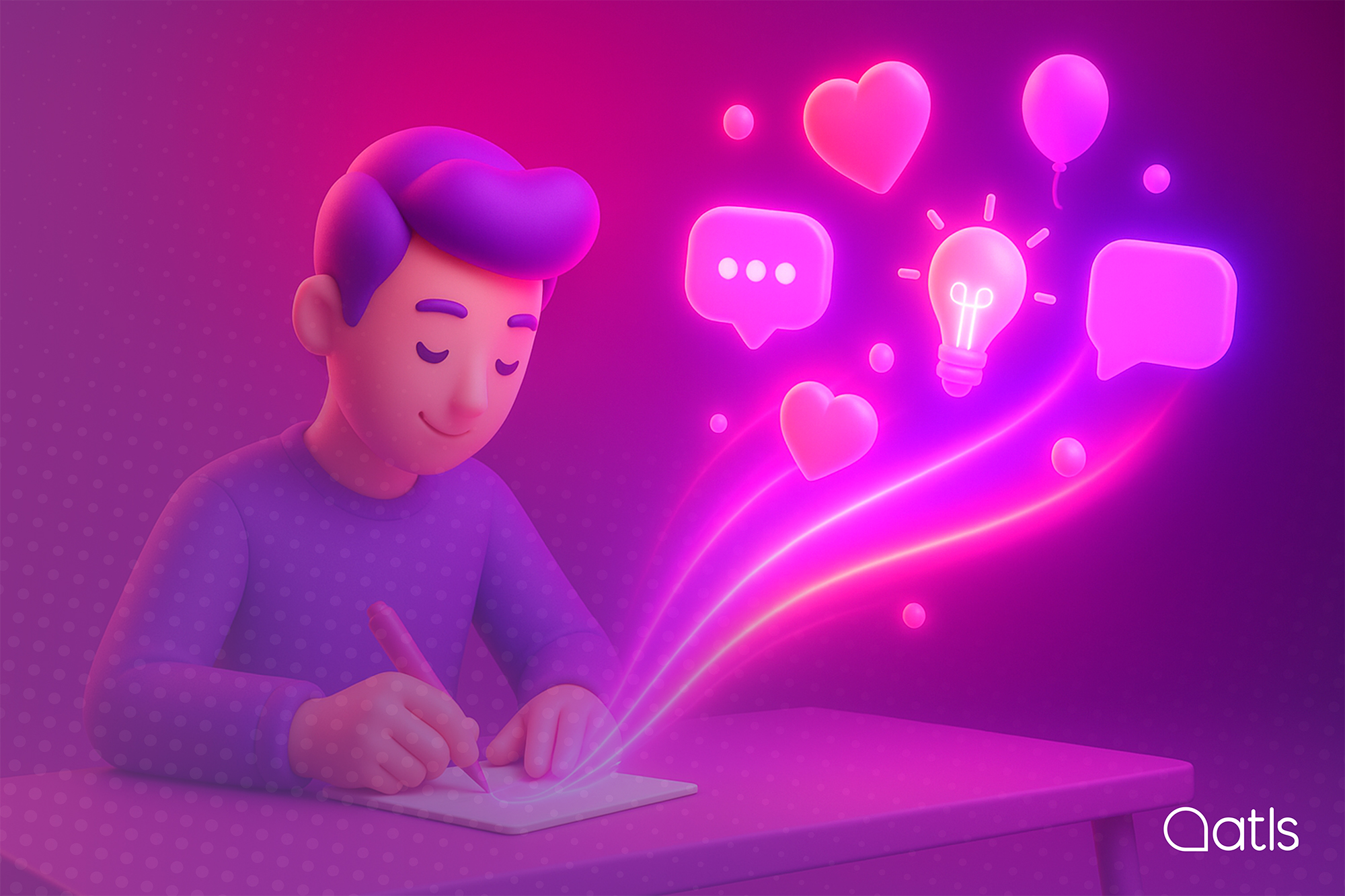In the era of artificial intelligence, many businesses have begun to entrust the writing of their website texts to automatic tools that promise speed, cost-effectiveness and immediate results. Outwardly, it seems like the perfect solution: you can generate content in seconds and save hours of human labour. However, what at first glance appears to be an advantage can become a serious problem for your business. AI-written content penalises your SEO. These texts have no communicative intent, nuance or contextual understanding. They are grammatically correct but devoid of strategy and brand soul.
What many businesses don't realise is that automated content can negatively impact SEO, hurt their digital reputation and even undermine users' perception of their brand. Google is becoming increasingly adept at identifying when a text does not bring real value to the reader, and artificial content, no matter how well written it may seem, often falls into this trap.
This means that professional copywriting is still irreplaceable. Behind every effective word there is strategic thinking, deep audience insight and a clear intention: to connect, persuade and convert.
No AI can replace the creativity, empathy and strategic vision of a human copywriter.
Google doesn't penalise AI, but AI can penalise your SEO
Google's algorithm does not directly penalise the use of artificial intelligence, but it does severely punish texts which do not bring real value to the user. In other words, it is not about who writes the content but rather its quality and how well it matches the search intent.
The problem is that AI-generated texts often lack depth and authenticity. They tend to repeat structures, overuse generic connectors and furnish superficial or redundant information. They sound right but are in fact empty. They don't answer the user's real questions or provide any distinctive vision, and that's exactly what Google's algorithms are designed to spot.
When the content has no originality or usefulness, it sends a clear signal to Google: it is poor quality material. The impact is immediate: lower search engine visibility, shorter time spent on the page and a higher bounce rate. This ultimately affects not only ranking but also the brand's credibility and trustworthiness.
By contrast, a professional copywriter writes with purpose. They understand the rules of SEO and combine them with user psychology and brand storytelling.
They know how to build texts with semantic coherence, natural rhythm and a unique voice that sets the company apart from its competitors. They are proficient in content hierarchy, select the most relevant keywords and optimise the text to ensure Google rates it positively without over-optimising or compromising naturalness.
In short, while AI writes sentences, copywriters craft messages. And that difference, albeit subtle, is what decides whether your brand ranks highly... or gets lost among thousands of generic results.
AI doesn't understand user intent and that penalises your SEO.
Copywriting is not simply a matter of writing correct sentences: it's about understanding why users search for what they search for and what they expect to find when they get to your website. It's a strategic approach blending psychology, marketing, linguistics and user experience.
Artificial intelligence can generate structured, grammatically flawless text, but it cannot interpret human feelings, contexts or motivations. It doesn't grasp the frustration behind a search, or curiosity or the longing to find a tangible solution.
Likewise, it doesn't distinguish between a user searching for information ("how to organise an online course") and another who is looking to buy ("best platform for creating online courses").
This difference in search intent is what shapes the thrust of any SEO copywriting strategy.
The type of search (informational, transactional or navigational) determines the tone, structure and calls to action. And this is where AI comes up short: it has no strategic insight. It may mix levels of intent or construct texts which, while sounding good, don't steer the user toward conversion.
Conversely, a professional copywriter scrutinises each keyword from a human and business standpoint. They know how to identify what the user truly needs, how to walk them through the conversion funnel and when to trigger an emotional or rational response.
They match the tone of voice to each stage of the journey and translate marketing objectives into messages which persuade without being pushy, inform without being boring, and sell without seeming like they're selling.
AI reproduces; a copywriter interprets and anticipates. That ability to read between the lines is what turns an optimised text into a conversion tool.
Automated content wrecks brand identity and penalises your SEO.
Every company has its own personality, a particular way of expressing itself and a unique approach to engaging with its audience. That voice is what makes a brand recognisable and memorable. It's what gets users to identify a message even before they see the logo.
Artificial intelligence, meanwhile, is devoid of identity and storytelling sensibility. Its texts may sound correct, yet they are impersonal, neutral and bereft of emotional intent. They use generic formulas and interchangeable expressions that could be from any company in the world. Consequently, a brand that replaces its voice with AI-generated content gives up its authenticity and ends up drowning in a sea of indistinguishable messages.
Artificial intelligence, meanwhile, is devoid of identity and storytelling sensibility. Its texts may sound correct, yet they are impersonal, neutral and bereft of emotional intent. They use generic formulas and interchangeable expressions that could be from any company in the world. Consequently, a brand that replaces its voice with AI-generated content gives up its authenticity and ends up drowning in a sea of indistinguishable messages.
In competitive industries such as technology, tourism and marketing, that loss of authenticity can be lethal. Users seek trust, empathy and consistency. They want to feel that behind a website there are people who understand their needs and speak their language. When content sounds cold, robotic or generic, the emotional connection disappears. And with it, trust and conversion.
Professional copywriting doesn't just write: it builds identity. It defines the brand's voice, tailors its tone to each context and retains consistency across all channels.
A good copywriter ensures that every word enhances the essence of the brand, conveys authority and forges a relationship of trust with the audience.
In short, while AI produces text, copywriters create a brand voice: a robust, consistent and distinctive one which can generate long-term recall, loyalty and digital authority.
AI can't optimise for real SEO and ends up penalising your SEO
Although artificial intelligence can insert keywords in a text and simulate a certain SEO structure, it only has a superficial grasp of optimisation. AI doesn't understand semantic intent, doesn't recognise content hierarchy or pick up on the nuances of language that make a text truly relevant to the user. Much less is it proficient in concepts such as E-E-A-T (Experience, Expertise, Authoritativeness and Trustworthiness), crucial mainstays of contemporary SEO that rate the writer's experience, authority and reliability.
In practice, this means that AI-generated text may look optimised, but in fact it is not aligned with the website's overall SEO strategy. It tends to force keywords, repeat concepts or overlook the semantic relationships which Google interprets to determine the relevance of content. Furthermore, it does not understand the importance of internal linking, the context between pages or how to structure information to guide both the reader and Google's crawler.
A professional copywriter, by contrast, is proficient in both technical and editorial SEO. They can include keywords naturally, respect search intent and enhance the semantics of the text without trading off fluency or authenticity. They are familiar with your site architecture, plan heading hierarchy, add strategic links and optimise metadata to improve indexing. Yet most of all, they understand that SEO is not about writing for an algorithm but rather writing for people who use that algorithm to find real value.
The outcome of striking this balance is much more than just better rankings: it is a coherent, engaging and compelling reading experience. Google rewards content that appeals to users, and users stay longer on websites that provide them with value.
Consequently, text created by a professional copywriter not only achieves greater visibility in search engines but also more conversions, greater retention and a long-lasting relationship of trust between brand and user.
Sell more and stop AI from penalising your SEO with professional copywriting
In a crowded digital environment, successful brands are those that can communicate with precision, emotion and strategy. A text is not just a collection of words: it is the thread that connects your value proposition with your customer's purchasing decision.
At ATLS, our specialist copywriters are experts in the art of turning messages into sales. They analyse your brand, market and audience to craft unique, compelling content matching your business goals. Texts which rank well on Google, but more importantly make your message stand out from the competition and build genuine trust.
Ensure your brand is read, remembered and chosen.






